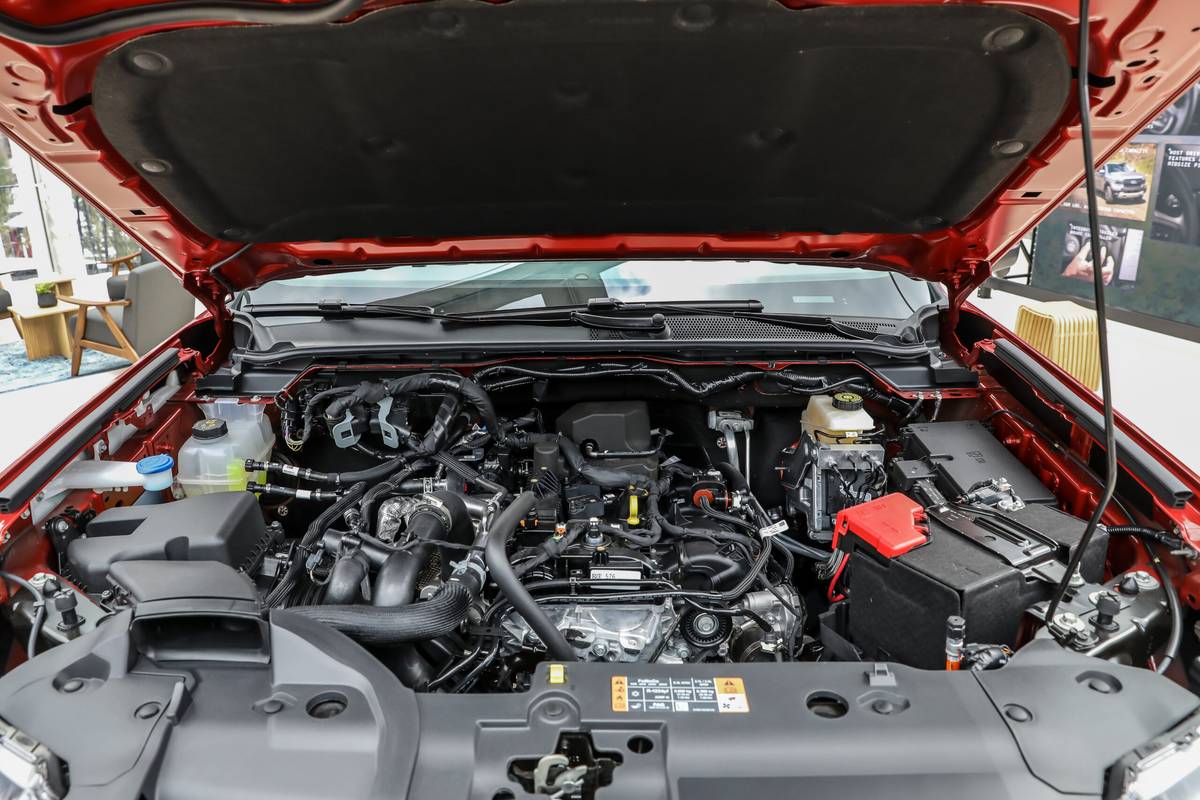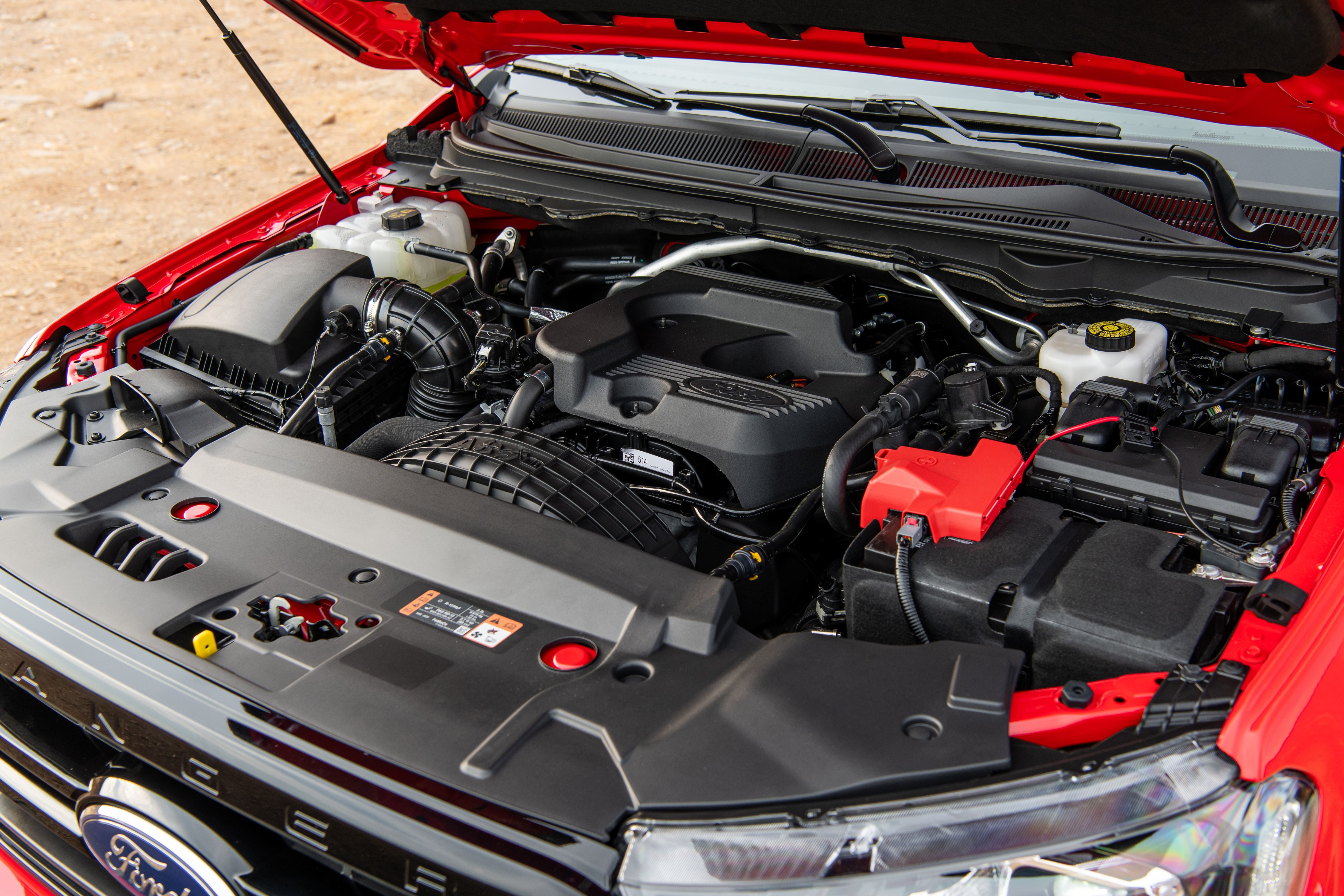Everything You Need to Know About the 2.2 Ford Ranger Engine and Its Performance
Everything You Need to Know About the 2.2 Ford Ranger Engine and Its Performance
Blog Article
How to Select the Right Car Engine for Optimum Efficiency and Effectiveness
Picking the appropriate automobile engine to accomplish an ideal balance of performance and effectiveness requires a nuanced understanding of various engine kinds and their certain features (2.2 ford ranger engine). Factors such as engine displacement, the number of cyndrical tubes, and gas kind play a crucial duty in identifying both power outcome and fuel economic climate.
Recognizing Engine Kind
When picking a cars and truck, one of the most essential components to think about is the engine type, which works as the heart of the car. The engine type significantly affects the auto's total performance, longevity, and viability for your driving demands. There are mostly three engine types to think about: internal combustion engines (ICE), hybrid engines, and electric engines.
Internal combustion engines stay one of the most common, operating gasoline or diesel. They are recognized for their power and acceleration, making them suitable for performance-oriented automobiles. They might fall short in gas effectiveness and environmental influence.
Hybrid engines combine an inner combustion engine with an electric motor, supplying an equilibrium in between efficiency and gas economy. They are increasingly prominent for chauffeurs seeking minimized emissions while still supplying sufficient power.
Electric engines, powered completely by batteries, are obtaining grip due to their ecological benefits and lower running expenses. They provide immediate torque and a silent driving experience, making them excellent for urban travelling.

Performance vs. Effectiveness
Picking the ideal engine type involves weighing the trade-offs in between efficiency and effectiveness. Efficiency normally refers to exactly how well an engine can supply power and velocity, which is frequently connected with bigger displacement engines or those with turbocharging abilities. These engines typically provide exciting driving experiences and fast action times, making them prominent amongst lovers.
On the other hand, efficiency concentrates on fuel economic climate and lower exhausts. Smaller engines, especially those equipped with innovative innovations such as direct fuel shot and variable shutoff timing, often tend to deliver better miles per gallon and lowered carbon impacts. While these engines may give up some power compared to their bigger counterparts, they typically succeed in everyday driving situations where high performance is not constantly essential.
Inevitably, the choice between efficiency and effectiveness joints on private priorities. A vehicle driver who values perky driving could prioritize a high-performance engine, while someone seeking cost-efficient commuting might favor an effective option. Recognizing these compromises is essential for making an educated decision that straightens with your driving requirements and way of life, making sure that the chosen engine kind matches your assumptions for both performance and efficiency.
Trick Specifications to Think About
Understanding crucial requirements is important for making an informed decision concerning the right auto engine. When selecting an engine, several essential variables require factor to consider to ensure optimal performance and effectiveness.
First of all, engine variation, measured in litres or cubic centimeters, is a vital requirements. It shows the complete quantity of the engine's cylinders and typically correlates with power outcome; bigger displacements commonly yield more power. Next off, the variety of cyndrical tubes plays a significant function in performance qualities. Engines with more cylinders can supply smoother operation and greater power, while smaller sized arrangements can boost fuel efficiency.
Furthermore, the engine's setup, whether inline, V-type, or rotating, influences the general layout and efficiency attributes of the lorry - 2.2 ford ranger engine. Turbocharging and supercharging innovations should also be assessed; these increase an engine's power output without considerably enhancing its size, thus boosting performance
Gas kind is one more crucial consideration, as it impacts both performance and prices. Finally, the engine's compression ratio impacts efficiency and power shipment; a higher ratio generally results in far better efficiency, however might require exceptional gas. By meticulously evaluating these requirements, you can choose an engine that aligns with your performance and performance objectives.
Reviewing Driving Needs
Evaluating driving needs is a basic step in identifying the ideal car engine for your way of life and use patterns. If your driving mostly is composed of short commutes in metropolitan atmospheres, a smaller engine with great fuel effectiveness may be sufficient.
Consider the terrain you generally navigate. Hilly or sturdy landscapes may require an engine with higher torque for much better performance. Additionally, review traveler and cargo requirements; bigger households or those who carry goods might benefit from vehicles with boosted power and capability.
It's also necessary to evaluate your gas choices. Diesel engines typically provide superior torque and fuel economic situation for much visit the site heavier vehicles, while gasoline engines may supply a smoother and quieter experience. Factor in ecological considerations, as crossbreed or electric engines can give a much more lasting option without giving up performance. By thoroughly recognizing your driving requirements, you can make an enlightened decision that straightens with both performance expectations and effectiveness objectives.
Future Patterns in Engine Modern Technology
As the automotive market remains to advance, advancements in engine modern technology are paving the way for a lot more reliable and lasting driving experiences. One considerable trend is the change toward electrification, with crossbreed and totally electrical powertrains acquiring prestige. Automakers are spending heavily in battery modern technology to Home Page enhance power density and decrease billing times, ultimately boosting the practicality of electric cars (EVs)
Another emerging pattern is the advancement of hydrogen fuel cell engines. 2.2 ford ranger engine. These systems offer the potential for zero-emission driving while supplying refueling times comparable to traditional fuel engines. Furthermore, developments in burning modern technology, such as variable compression proportions and improved turbocharging, are enhancing typical interior burning engines for much better performance and performance
Digital assimilation is likewise a crucial aspect of future engine technology. The implementation of expert system and artificial intelligence enables real-time information analysis, enabling smarter engine administration systems that adapt to driving problems and improve fuel effectiveness.

Final Thought
Finally, selecting the proper automobile engine requires a detailed analysis of different elements, consisting of engine type, performance needs, and effectiveness objectives. By recognizing the distinctions in between different engine types and thinking about essential specifications, individuals can align their choices with details driving needs. As innovations in engine innovation continue to emerge, staying informed regarding future patterns will certainly additionally enhance decision-making, inevitably resulting in an automobile that stabilizes efficiency and fuel effectiveness successfully.
Picking the appropriate cars and truck engine to achieve an ideal equilibrium of performance and effectiveness demands a nuanced understanding of various engine types and their certain attributes. There are mostly 3 engine kinds to think this page about: inner burning engines (ICE), hybrid engines, and electric engines.
Efficiency typically refers to how well an engine can provide power and velocity, which is often associated with larger displacement engines or those with turbocharging capacities. Diesel engines usually supply premium torque and gas economic situation for heavier automobiles, while gas engines may give a smoother and quieter experience.In final thought, choosing the proper auto engine demands a comprehensive assessment of different elements, consisting of engine kind, performance requirements, and effectiveness objectives.
Report this page